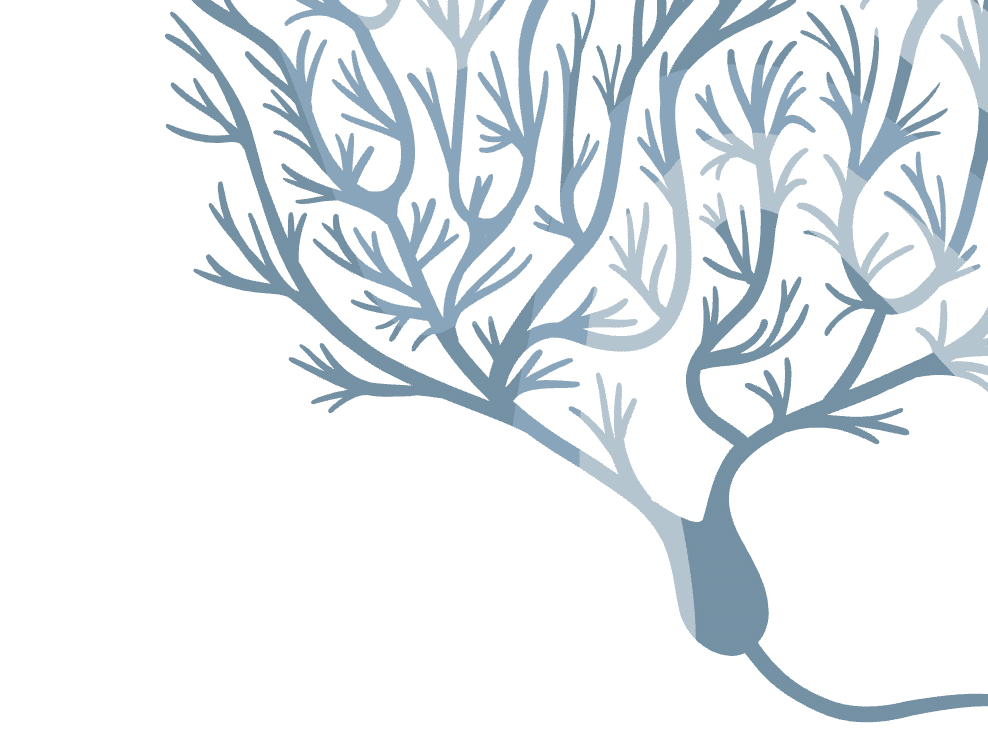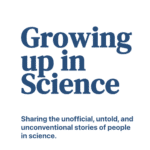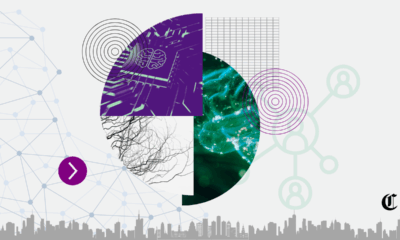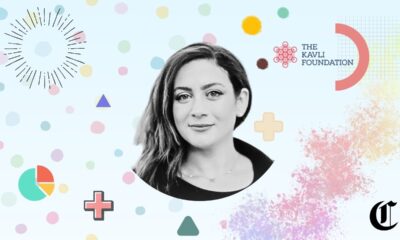Stories in Science Special Series
Growing up in Science: Anne Urai

Anne Urai
[su_boxbox title=”About”]Dr. Anne Urai received her undergraduate degree in cognitive neuroscience and philosophy at University College Utrecht in 2010, followed by a masters in brain and mind sciences at University College London and Ecole Normale Superieure in Paris. She then pursued her doctoral research with Tobias Donner at the Universitätsklinikum Hamburg-Eppendorf and University of Amsterdam, investigating how our previous choices bias the way we interpret later information, and how this process is affected by the confidence in our decisions. Her PhD was awarded the NVP brain and cognition thesis prize, specifically for its combination of interdisciplinary methodology and open science approaches. As a postdoctoral fellow in Anne Churchland’s lab at Cold Spring Harbor in New York, she studied the neurophysiology of decision-making using high-density neural recordings in the mouse brain. During this time she was a core member of the International Brain Laboratory, working with a global team of systems and computational neuroscientists to assess the reproducibility of systems neuroscience. She joined Leiden University in The Netherlands as an Assistant Professor in 2020, and was awarded tenure in 2022. Dr. Anne Urai’s research focuses on the neural basis of decision-making across mammalian species, and the interaction between learning and perception. A current focus of her work, funded by an NWO Veni grant, is on changes in neural and behavioral noise across the lifespan. The story below is co-published with Growing up in Science. [/su_boxbox]
[dropcap]I[/dropcap]had a careless childhood. I was good at school, but could never quite decide on my passions. I dropped high-school physics and chemistry in a streak of rebelliousness, only to realize my mistake a year later and catch up over the summer break. In my first semester at university, I randomly signed up for several interesting-sounded courses and got into cognitive neuroscience and philosophy.
I loved both of them, deciding on the spot that I would solve all of psychology by studying the brain. I spent my exchange semester traveling and eating my way through China, and another year working soul-crushing sales jobs, herding sheep in France and ultimately following my boyfriend to backpack through Asia. In a hot Moroccan internet cafe, I read that someone would pay my to live and study in London and Paris for two years, which seemed too good to true!
During my masters, I pursued my fascination for consciousness research (usually reserved for retiring professors) which mostly involved staring at EEG wiggles in windowless rooms. As a friendly collaborator was fixing my atrocious Matlab code, he off-handedly mentioned that Tobias Donner had just started a lab in Amsterdam – conveniently close to the city where said boyfriend had just started a new job. With my heart racing I approached Tobias at a meeting, didn’t faint, applied for a fellowship, and started my PhD in his group.
Having made most of my MSc thesis figures in Excel, I suffered serious imposter syndrome, but discovered I actually quite liked the technical and programming parts of the job. I passed through a serious crisis halfway through the PhD: my initial proposal turned out to be severely underpowered, psychology’s replication crisis was in full swing, my advisor’s lab had moved to another country, and I hadn’t published a single paper.
My advisor’s gentle persistence, many yoga classes and an adopted cat helped me follow through, and I decided to give postdoc life a chance. After getting stuck in a snowstorm when interviewing at CSHL, I accepted the offer to join the Churchland lab, got married, and defended my PhD within a frantic 6-months!
Coming from a background in psychology and cognitive neuroscience, it was both frightening and exhilarating to work with ‘real’ neuroscientists. I had to learn soldering, surgery and bluffing my way through genetics. I loved being a part of the (then early-stage) International Brain Lab, but started feeling terribly homesick after 1.5 years on Long Island.
Just as I prepared to spend the summer doing data analysis in NYC, Covid-19 hit. Bored at home in lockdown, I opened a long-forgotten ‘Jobs’ email folder and saw a vacancy for a combined psychology teaching and research position in The Netherlands. Within short succession, I found out I was pregnant, got the job, and learned the Churchland lab would be moving to California! Choosing my rainy, flat home country over sunshine, I hurried to finish experiments and returned home just in time for maternity leave.
So far, I have survived my first year of sleep-deprived parenthood and my assistant professorship, which has turned into a tenured position by happenstance (i.e. union negotiations). While getting settled into faculty life, I regularly experience existential dread and wonders if writing scientific papers is what I should be doing for the next 35 years. Since my postdoc in the US, I am increasingly concerned about the climate crisis, and I spend my evenings thinking about decarbonizing academia and worrying about the future.
Metrics
Sessions
Total number of Sessions. A session is the period time a user is actively engaged with the page.
Visitors
Users that have had at least one session within the selected date range. Includes both new and returning users.
Page views
Pageviews is the total number of time the article was viewed. Repeated views are counted.

-
Audio Studio1 month ago
“Reading it opened up a whole new world.” Kim Steele on building her company ‘Documentaries Don’t Work’
-
Civic Science Observer1 week ago
‘Science policy’ Google searches spiked in 2025. What does that mean?
-
Civic Science Observer1 month ago
Our developing civic science photojournalism experiment: Photos from 2025
-
Civic Science Observer1 month ago
Together again: Day 1 of the 2025 ASTC conference in black and white
Contact
Menu
Designed with WordPress

























